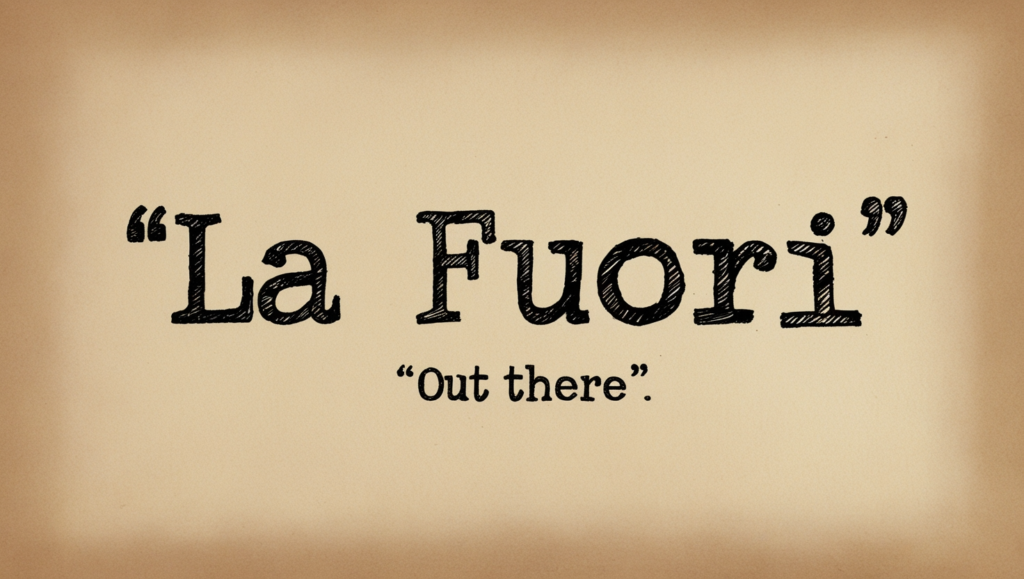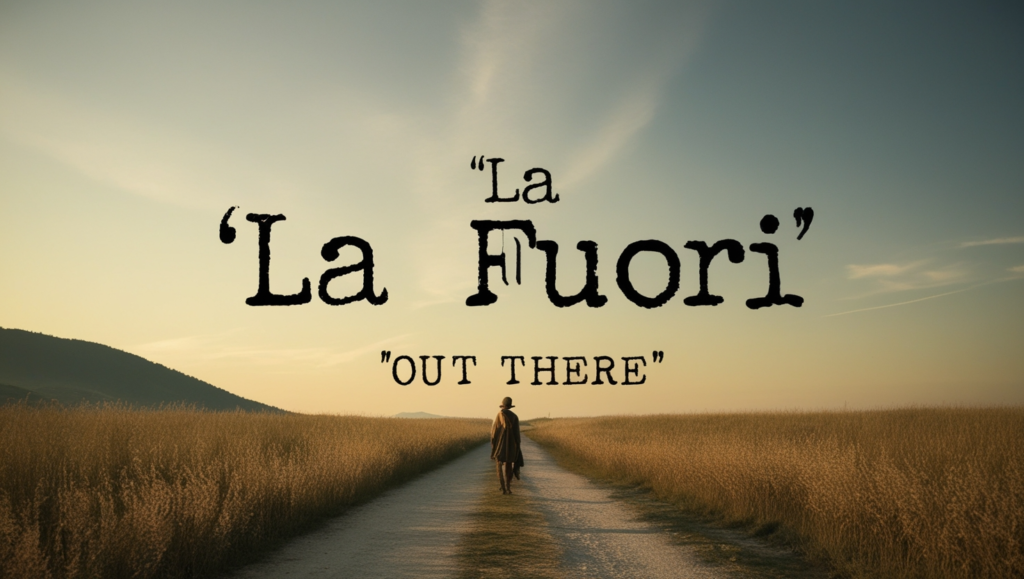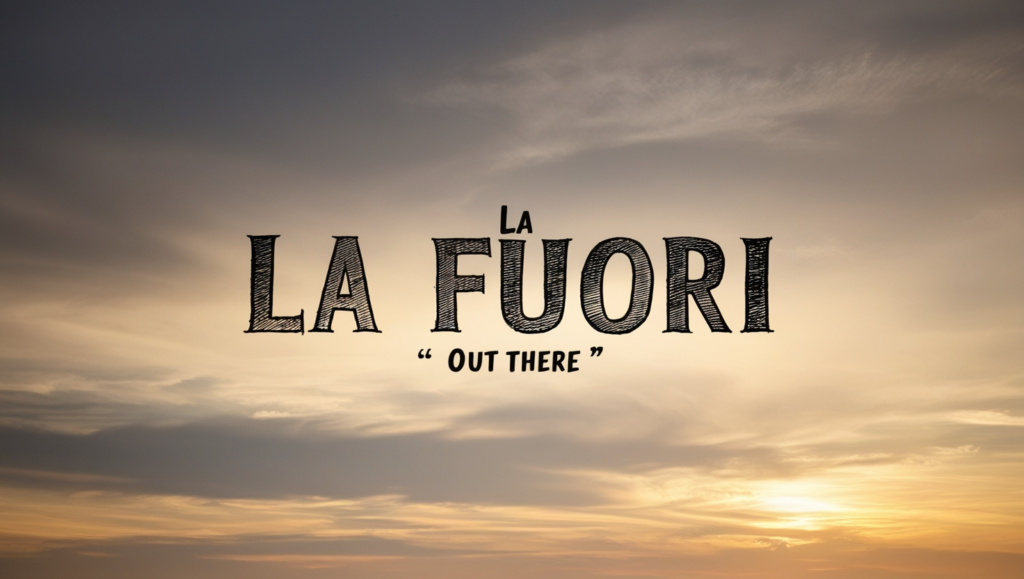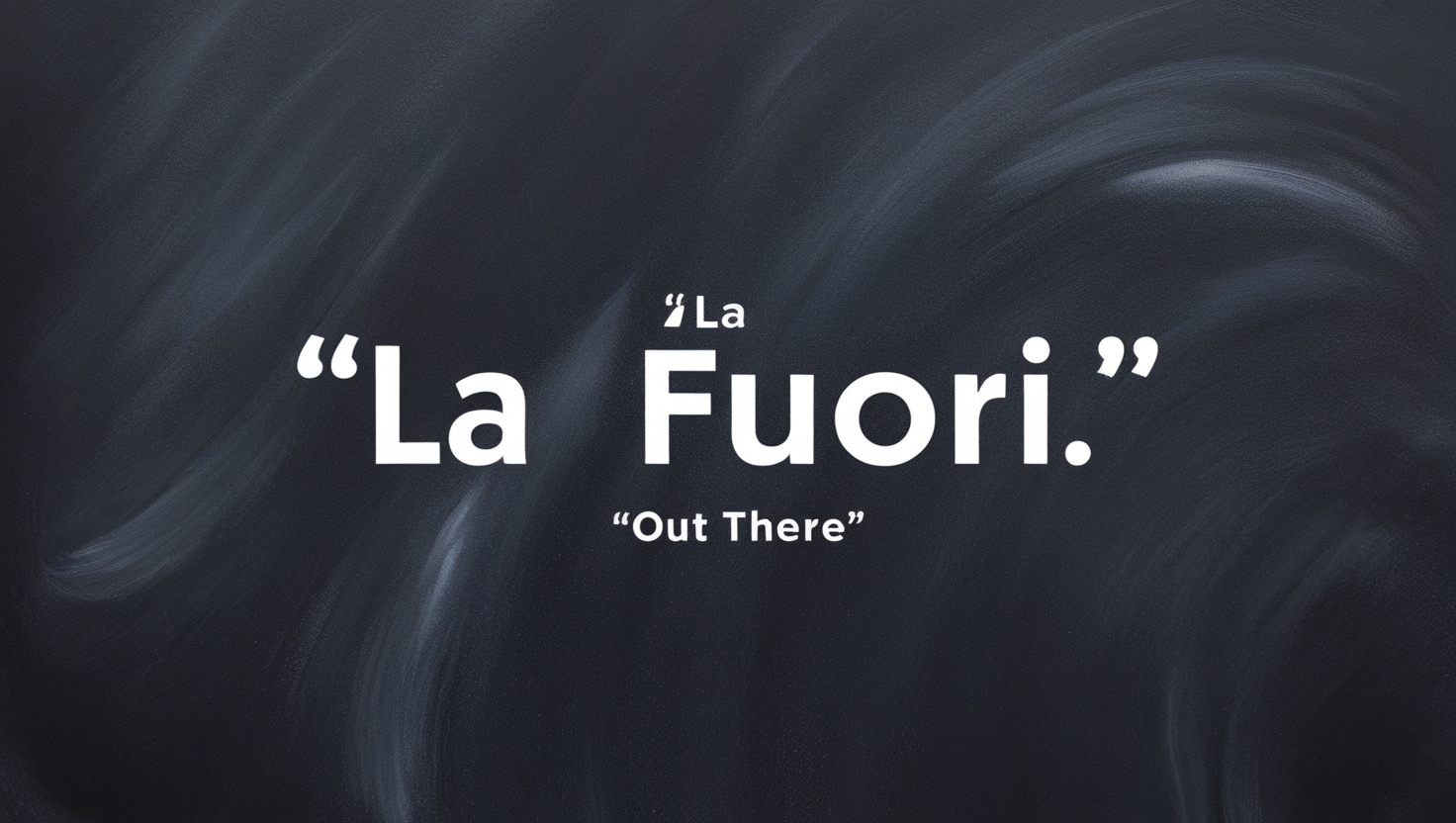The phrase “La Fuori” carries a certain poetic quality, often evoking feelings of mystery, adventure, and the unknown. In Italian, “La Fuori” translates to “out there,” a simple yet powerful phrase that can embody a range of meanings depending on the context. From literature and film to daily conversation, “La Fuori” serves as a gateway into the Italian way of perceiving the world beyond one’s immediate surroundings. This phrase, with its blend of curiosity and reverence for what lies ahead, reflects a fundamental aspect of Italian culture.
The Cultural Significance of “La Fuori”
In Italian culture, “La Fuori” can represent a sense of wonder and exploration. It often symbolizes the idea of venturing into uncharted territory, whether physically, emotionally, or intellectually. The phrase might be used when discussing new experiences, faraway places, or even abstract concepts like the future. Its versatility allows Italians to use “La Fuori” in various contexts, but at its core, it embodies a spirit of openness to the unknown. This cultural significance highlights the value that Italians place on curiosity and the pursuit of new adventures.
“La Fuori” in Italian Literature and Cinema
Italian literature and cinema frequently use “La Fuori” as a motif, representing the tension between the familiar and the foreign. In classic Italian films, characters often refer to “La Fuori” when they contemplate leaving their small towns for the possibilities that await the broader world. Similarly, in literature, authors have used “La Fuori” to symbolize the characters’ desire to break free from societal constraints and explore new horizons. This recurring theme speaks to the deep-rooted Italian appreciation for journey and discovery, both literal and metaphorical.

The Emotional Depth of “La Fuori”
Beyond its cultural and artistic uses, “La Fuori” also carries emotional weight. It can represent feelings of hope, fear, or excitement about what lies ahead. In conversations, the phrase might be used when someone is reflecting on life outside their immediate reality, whether contemplating a move to a new city, a change in life circumstances, or even philosophical musings about the future. The emotional depth of “La Fuori” allows it to connect with individuals on a personal level, resonating with their inner desires for change and growth.
“La Fuori” as a Reflection of Italian Identity
The phrase “La Fuori” is also a reflection of the Italian identity, which is often characterized by a balance between tradition and modernity. Italians have a solid connection to their roots, yet they also maintain an openness to the world beyond their borders. “La Fuori” captures this duality perfectly, as it encapsulates both the yearning to explore new possibilities and the respect for what is known and familiar. This balance is a central part of the Italian identity, and “La Fuori” serves as a linguistic embodiment of this cultural dynamic.
The Philosophical Aspects of “La Fuori”
On a philosophical level, “La Fuori” can be interpreted as a metaphor for the human condition. It speaks to the innate human desire to seek out the unknown, challenge oneself, and grow beyond one’s current state. In this sense, “La Fuori” becomes more than just a phrase; it is a concept that invites reflection on life’s more significant questions. What does it mean to step outside of one’s comfort zone? What are the possibilities that await us “out there”? These questions lie at the heart of the philosophical exploration that “La Fuori” encourages.
La Fuori as an Invitation to Adventure
Ultimately, “La Fuori” is an invitation to adventure, both in the literal and figurative sense. It calls on individuals to look beyond their immediate surroundings and embrace the opportunities that exist beyond the horizon. Whether used in casual conversation or within the context of a larger narrative, “La Fuori” encourages an attitude of exploration, urging people to engage with the world in new and meaningful ways. It serves as a reminder that the unknown is not something to be feared but rather something to be embraced with open arms.

La Fuori and the Essence of Wanderlust
At its core, “La Fuori” embodies the very essence of wanderlust, a deep-seated longing to travel and experience the unknown. For many Italians, and indeed people around the world, the phrase can conjure images of distant landscapes, bustling cities, and new adventures waiting to unfold. The concept of wanderlust is woven into the fabric of human nature, and “La Fuori” captures that instinctive desire to explore what lies beyond the familiar. It speaks to the heart of travelers and dreamers alike, offering a linguistic expression for the craving to experience life beyond one’s current environment.
La Fuori in Contemporary Italian Life
In contemporary Italian life, “La Fuori” continues to be a phrase filled with meaning. It might be heard in conversations between friends, used to describe a potential journey, or even in a metaphorical sense to discuss one’s dreams and aspirations. The phrase holds particular significance in a society where history and tradition coexist with modernity and change. Italians, with their deep sense of culture and heritage, often use “La Fuori” to express a balance between holding on to their rich past and looking forward to the new opportunities that lie ahead in the globalized world.
“La Fuori” and the Italian Approach to Change
Change is an inevitable part of life, and the phrase “La Fuori” reflects the Italian approach to it. Italians often have a nuanced relationship with change. While they are deeply connected to their traditions and local communities, there is also an understanding that growth comes from embracing the unknown. “La Fuori” captures this delicate balance, serving as a reminder that stepping into unfamiliar territory, whether personally or professionally, is essential for development. This approach to change, as expressed through “La Fuori,” highlights the Italian capacity to evolve while maintaining a connection to their roots.
The Artistic Representation of “La Fuori” in Modern Media
Modern media has continued to explore and expand on the concept of “La Fuori.” From films to art installations, Italian and international creators have used this evocative phrase to symbolize both physical and metaphorical journeys. In contemporary cinema, for example, “La Fuori” is often referenced in stories about personal growth and transformation, where characters step out of their comfort zones and into the wider world. Visual artists also use the concept in their work, depicting landscapes that stretch into the distance, inviting viewers to imagine what lies beyond. Through these artistic interpretations, “La Fuori” remains a powerful cultural touchstone.

La Fuori as a Metaphor for Life’s Transitions
Throughout life, we all experience transitions—moments when we leave behind the unknown and venture into the unknown. “La Fuori” serves as a perfect metaphor for these times of transition, whether it’s starting a new job, moving to a new place, or embarking on a personal journey. The phrase reminds us that change, though often daunting, can also be filled with opportunity and growth. It captures the tension between staying within the safety of the familiar and the excitement of discovering what awaits beyond. In this way, “La Fuori” becomes not just a phrase but a mindset for navigating life’s inevitable changes.
Conclusion: The Enduring Power of “La Fuori”
In conclusion, “La Fuori” is more than just a phrase; it’s a concept that captures the essence of exploration, growth, and the unknown. Whether used in a cultural, emotional, or philosophical context, “La Fuori” serves as a reminder of the human desire to look beyond the familiar and embrace the possibilities that lie ahead. From its roots in Italian culture to its broader philosophical implications, “La Fuori” remains a powerful and evocative expression of the timeless human urge to seek out adventure and challenge the boundaries of the known world.





